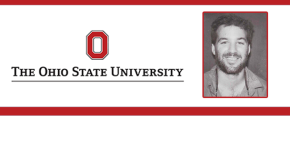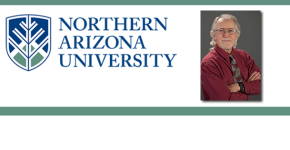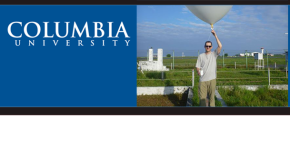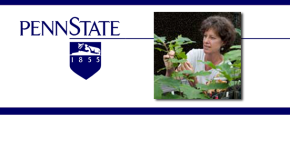Category: Biology
-

Chris Pires, Mizzou – Evolving Together
Sometimes the evolution of two organisms occurs in tandem. Chris Pires, associate professor in the division of biological sciences at the University of Missouri, is studying this type of evolution – commonly called co-evolution. Dr. Chris Pires studies the evolution of plants. He does this by comparing the genetic material of plants that are known…
-

Scott McGraw, OSU – Bitter Side of Cocoa
Is the production of chocolate having a negative impact? Scott McGraw, an anthropologist at The Ohio State University, is studying the dark side of cocoa farming. W. Scott McGraw is a professor in the Department of Evolution, Ecology and Organismal Biology at The Ohio State University. There, he is an evolutionary anatomist and primate behavioralist with primary research…
-

Larry Stevens, NAU – Chocolate Brain Boost
Pass the chocolate! Larry Stevens, a professor of psychological sciences at Northern Arizona University, is researching the brain-boosting powers of cocoa. Dr. Stevens’ primary interests are in teaching and research in the broad sub-specialty of health psychology and behavioral medicine. Dr. Stevens coordinates a very active undergraduate and graduate research program in the psychophysiology of…
-

Keith Clay, Indiana University – Tick Risks
Don’t get scared, but the threat of ticks is growing! Keith Clay, biologist at Indiana University, details the increasing presence of these insects. A Distinguished Professor of Biology at Indiana University Bloomington, Keith Clay studies how microbial interactions affect the dynamics of ecological communities. This research falls into four general areas: the microbial community ecology…
-

Emily O’Brien, Duke University – AFib
Atrial fibrillation is all too common. Emily O’Brien, a medical instructor in the Department of Medicine at Duke University Medical Center and the Health Services Research group at the Duke Clinical Research Institute, is working to treat the cardiac condition. Dr. O’Brien’s primary research focus is care delivery and outcomes in observational cardiovascular disease cohorts,…
-

Joseph Pawlik, UNCW – Killer Sponges
Sometimes living things don’t share a perfect symbiotic relationship. Joseph Pawlik, a professor at The University of North Carolina Wilmington, discusses sponges and coral reefs. Joseph Pawlik received his BS in 1982 from the University of Minnesota, Twin Cities, and his PhD in 1988 from Scripps Institution of Oceanography, UCSD. After postdoctoral fellowships at Friday…
-

Graham Hatfull, PITT – Bacteriophages
Viruses are all around us! Graham Hatfull, biologist at the University of Pittsburgh, is working to decode their genetic makeup. Graham F. Hatfull, Ph.D. Professor of Biological Sciences, Eberly Family Professor of Biotechnology, Howard Hughes Medical Institute Professor, University of Pittsburgh. Dr. Hatfull is Professor of Biological Sciences at the University of Pittsburgh. He received…
-

Adam Sobel, Columbia – Madden-Julian Oscillation
There’s very limited chance you’ve even heard of the Madden-Julian Oscillation. Adam Sobel, Columbia University professor, details this phenomenon known better by its acronym, the MJO. Adam Sobel is a professor in Columbia’s Fu Foundation School of Engineering and Applied Sciences, and Lamont-Doherty Earth Observatory; he is also director of the Columbia Initiative on…
-

Rob Spencer, FSU – Permafrost
Thawing carbon in the arctic is presenting some potential problems. Rob Spencer, an oceanographer at FSU, is studying permafrost. Rob Spencer is an assistant professor of oceanography at Florida State. Research in his laboratory is focused on understanding the chemical composition of Earth’s major carbon reservoirs (soils, sediments and dissolved organic matter (DOM) in marine…
-

Susan Brantley, Penn State – Hydraulic Fracturing Concerns
Is fracking harmful to our planet or is it worth the economic boon it brings? Susan Brantley, a professor of geosciences at Penn State University, is studying the water in areas where fracking occurs. Susan Brantley is a distinguished professor of geosciences and director of the Earth and Environmental Institute at Penn State. Her research…
